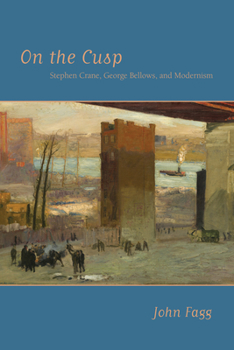On the Cusp: Stephen Crane, George Bellows, and Modernism
(Part of the Studies in American Realism and Naturalism Series)
The writer Stephen Crane (1871-1900) and the painter George Bellows (1882-1925) each wrestled with issues specific to their own fields. But both also have much in common: their works contain residual traces of earlier idioms, register the growing influence of mass culture, and pre-empt the formal strategies and experiments pursued by later modernists. John Fagg tells their stories in alternating chapters that highlight the common vocabularies of art and literature: ellipses, frames, and aphorisms in Crane's writing, and Bellows's use of anecdote, schema, and cliché. Chapter Two, for example, locates the narrative form of the "anecdote" in Bellows's depictions of New York scenes, highlighting the ways painting isolates and relays "small stories." Re-crossing the disciplinary divide, Chapter Three uses the visual metaphor of narrative "framing" to probe Crane's New York sketches. By identifying analogous formal and thematic concerns in painting and literature, Fagg offers a broad conception of cultural and aesthetic change that transcends the specifics of either medium. Crane's and Bellows's comparable traits, and their complex relationship to modernism, are cast in terms of a wider cultural response to the urban environment, the mass media, and other modern developments circa 1900.
Format:Hardcover
Language:English
ISBN:0817316515
ISBN13:9780817316518
Release Date:March 2009
Publisher:University Alabama Press
Length:280 Pages
Weight:1.30 lbs.
Dimensions:1.0" x 6.0" x 9.1"
Customer Reviews
0 rating





